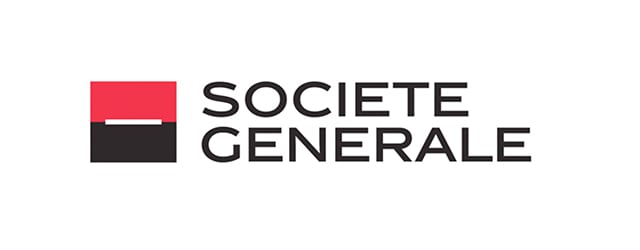The global payment landscape is experiencing a revolution with the introduction of real-time banking, the rise of digitalisation and new customer expectations. The new Request to Pay messaging service will transform the payments industry and increase usage of real-time payments, offering greater speed, flexibility and control and enhancing the payee and payer relationship.

As digital networks and devices transform the way we communicate, work and transact, the digital revolution is reshaping the payments industry. Cash is increasingly in decline as more value is driven to new payment channels. New payment providers are speeding up digital transformation, using technology to disrupt traditional networks and business models.
As a result, digitalisation is driving customer expectations. With e-commerce, customers require payment providers to ensure the money can follow the goods at the same velocity with no friction. In addition to fast, anytime, anywhere payments, customers expect greater security, flexibility and control.

Real-time payments are becoming the “new normal” for both domestic and cross-border transactions. To leverage the opportunities of real-time transactions, payment infrastructures need to be fast, available 24/7/365, flexible and secure. As the European Union invests in the existing SEPA Instant Credit Transfer (SCT Inst) scheme, today Instant Payments represent around 7.5% of SEPA transfers compared to 4.5 % in the same period in 2019*.
Amid these emerging industry dynamics, financial institutions are exploring new ways to deepen and enhance the customer experience. Following the expansion of Instant Payment, a new solution has been launched that realizes the full potential of real-time payments.
Real-Time Payment Messaging
Request to Pay is an innovative message exchange service that allows creditors or payees to claim a payment from a debtor or payer. It is a new flexible way to manage and settle payments among individuals as well as businesses and organisations.
Request to Pay is a messaging service — not a payment service itself. It acts as a partner to existing digital payment methods, and the payment channel is “payment type” agnostic. This means Request to Pay can be combined with SEPA Credit transfer (SCT) or SEPA Instant payments (SCT INST).
With Request to Pay, payees benefit from enhanced control over payment processes and improved reconciliation. By requesting outstanding payments, payees can accelerate the reception of their incoming payments and save time chasing debtors. In addition, a unique reference is generated by the payee during Request to Pay initiation, which is transmitted along the payment process. This facilitates the match between the payment and the payment claim.

For each request, payers are presented with various options, depending on the preferences set by payees. Payers can choose when they want to approve the request and when they want to make the payment. This gives payers greater flexibility of their outgoing payments, allowing them to decide whether to settle a debt immediately or to delay a payment.
Request to Pay presents businesses with a useful solution to deal with late payments. A service provider company ready to collect a payment due can send a customer a Request to Pay as a reminder of the payment. As the payment amount and remittance information is already filled by the biller, the debtors receive a complete Request in their banking application. This speeds up settlement of the due invoice. The debtor only needs to approve the bill and make the payment now or later, depending on the preferences and the timeframe set by the biller.
Reinventing Payments in Europe
Combined with new innovations in payments, Request to Pay will reinvent the customer payment experience in Europe. In addition to the existing SEPA payment schemes, the European Payments Council (EPC) is developing the pan-European standard SEPA Request to Pay (SRTP). The aim of SRTP is to provide interoperability and reachability within Europe. The SRTP Scheme Rulebook was published in November 2020 and will take effect soon, covering Request to Pay messages in euros.
Similar initiatives exist in individual European countries, but they are independent of SRTP, have their own functionalities and lack interoperability. SEPA Request to Pay is designed to provide a harmonised European solution.
Supporting this objective, Societe Generale was among the first financial institutions to contribute to the development of Request to Pay**. “This new solution will significantly enhance our corporate customers’ experience in their liquidity management”, said Nicolas Cailly, Deputy Head of Payments & Cash Management, Transaction Banking at Societe Generale. “Today, many businesses have reconciliation issues when they collect bills from other businesses and suffer from late payments. Request to Pay will ease the burden of managing receivables and reduce processing costs”.
Thanks to its flexibility, SEPA Request to Pay will bring high value to payment solutions in the European market”
Philippe Marquetty, Head of Payment at Societe Generale.
“Thanks to its flexibility, SEPA Request to Pay will bring high value to payment solutions in the European market”, added Philippe Marquetty, Head of Payment at Societe Generale. “Leveraging on modern banking infrastructure, Request to Pay will enrich the payment solutions landscape by offering consumers and businesses a user-friendly service and act as a catalyst for new payment solutions such as Instant Payment. Request to Pay is the missing link to achieve the potential of several use cases.”
Expanding the Request to Pay Market
As Request to Pay develops, Societe Generale is committed to sharing lessons between markets and working with regulators, governments and partner financial institutions to deliver payment system innovation that works at national and European levels.
* According to the European Payments Council (EPC) public website: https://www.europeanpaymentscouncil.eu/what-we-do/sepa-instant-credit-transfer
** Societe Generale is a member of EPC RTP Task Force, RTP EBA Clearing Working Group and STET RTP workshops.
Sponsored by:
